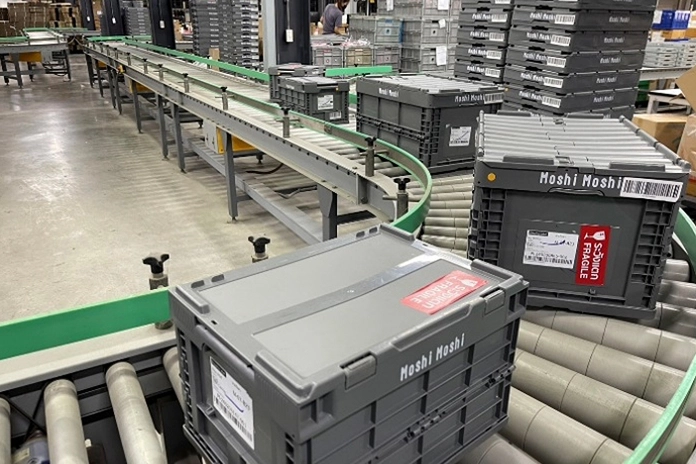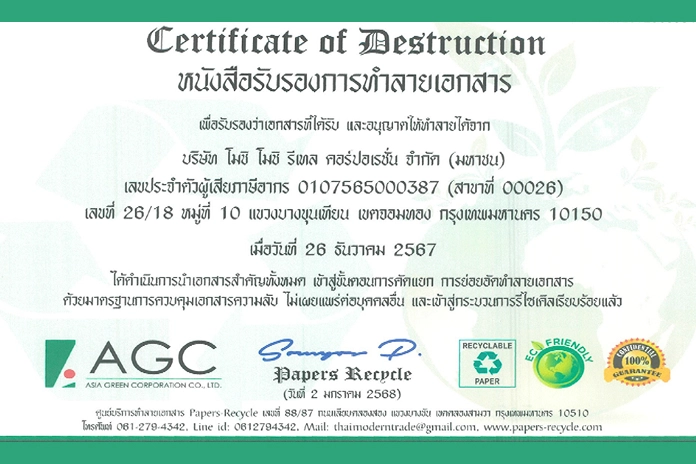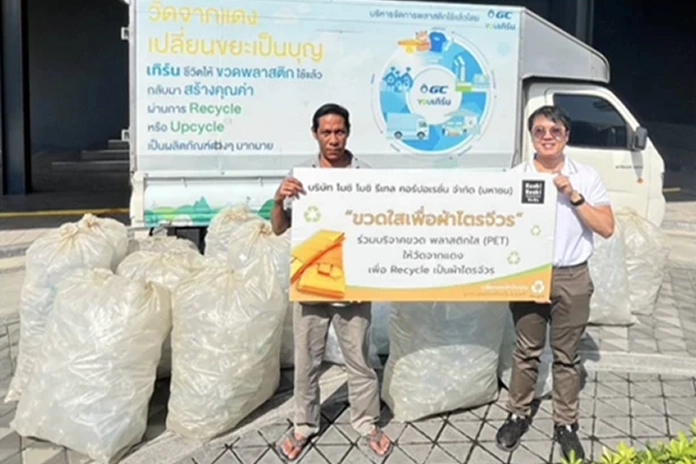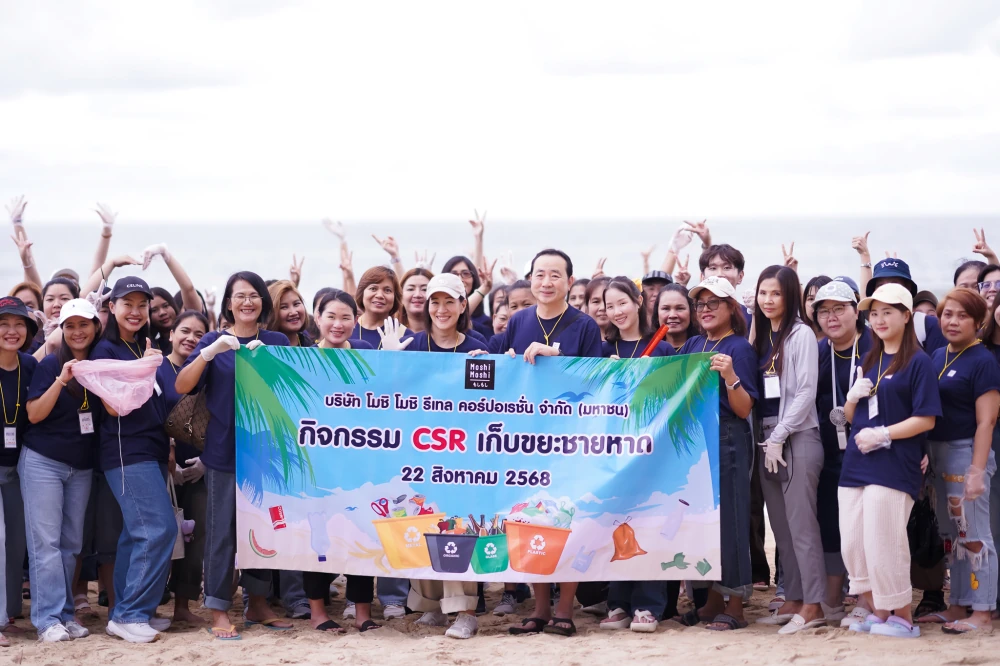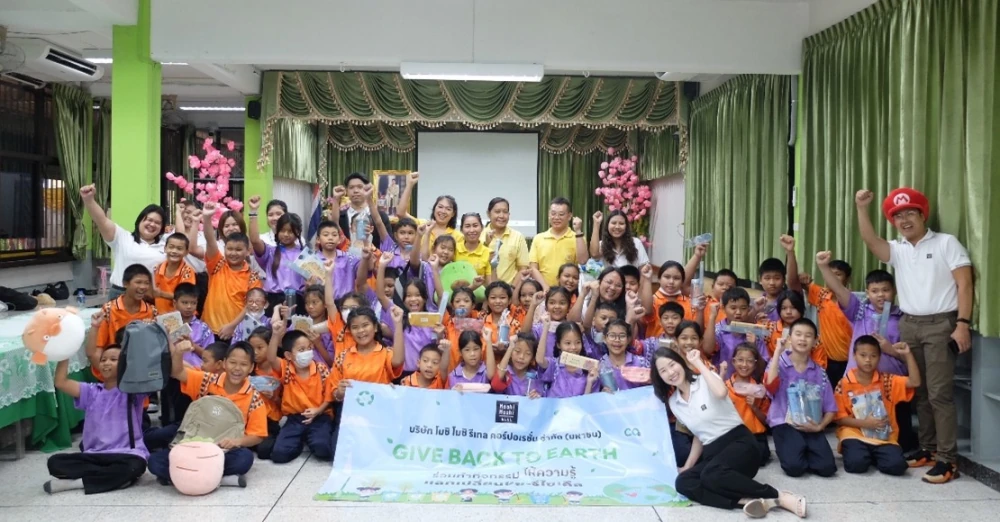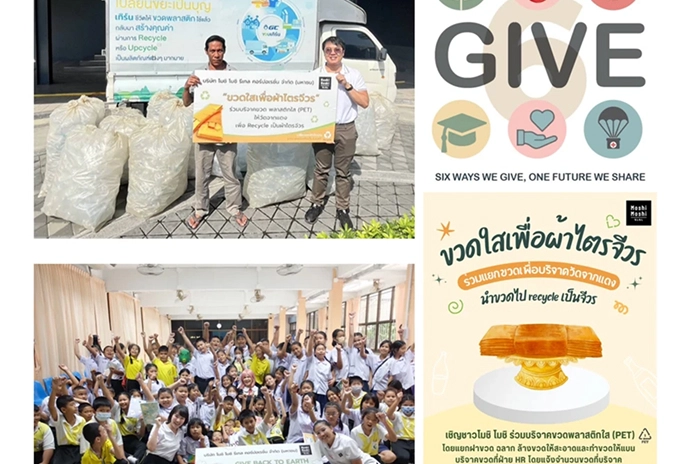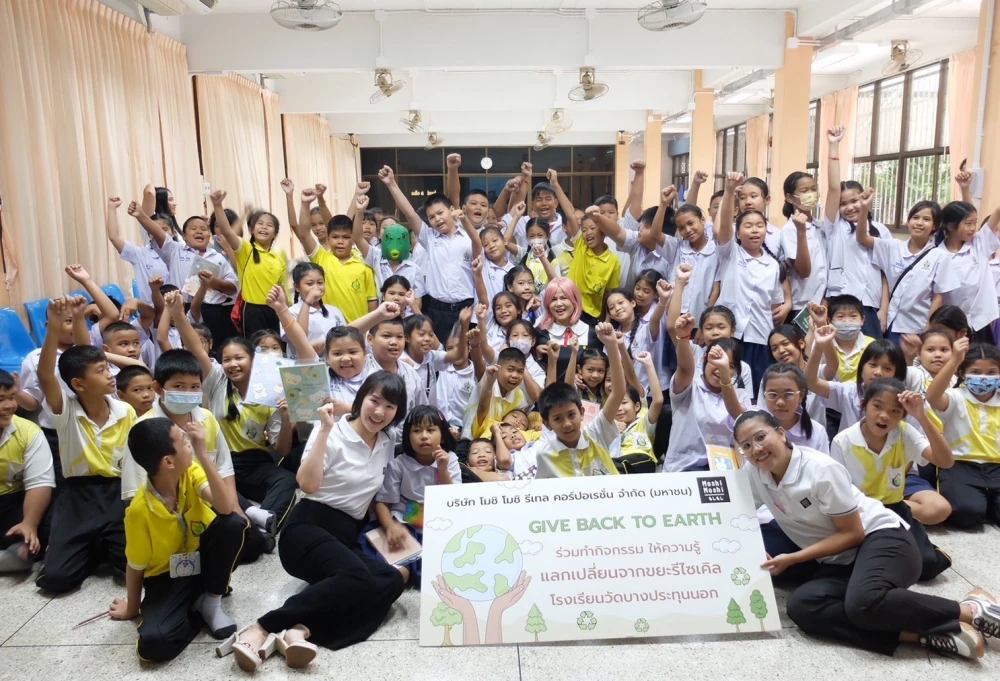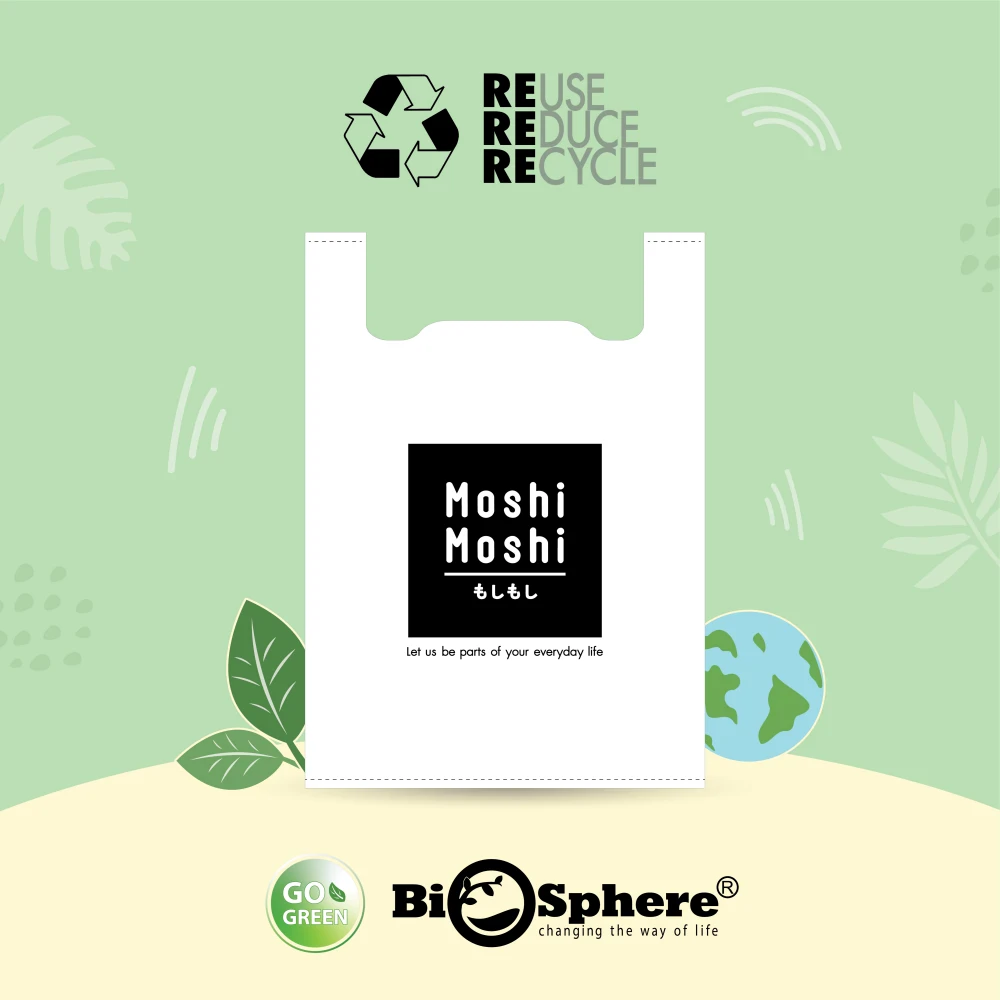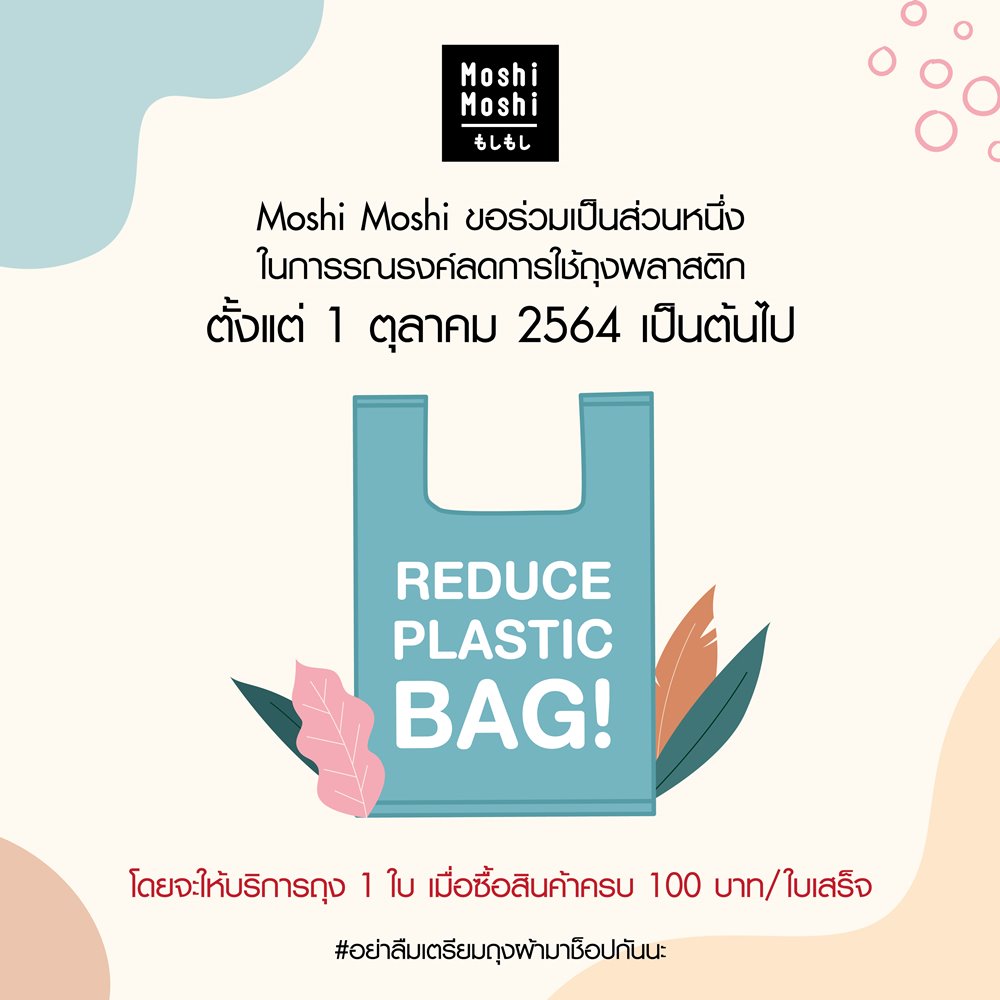
Environment
Environment Sustainability Management Goals
The company is committed to efficiently managing resources to reduce costs and environmental impact by complying with legal requirements, managing water, energy, and materials with value awareness, applying the 3R principles (Reduce, Reuse, Recycle), selecting environmentally-friendly products and packaging, and promoting participation of employees at all levels to continuously reduce and mitigate the impacts of climate change for the sustainability of the business and all stakeholder groups.
Resource Management
Energy
The company focuses on using energy resources efficiently to reduce environmental impact by promoting the use of alternative energy and changing employees' energy consumption behavior through communication and understanding. Investment in clean energy technology, although it may impact short-term profits, will help control operating costs in the long run, reduce risks from energy price volatility, and create an image of an organization that is responsible to society and the environment. All of this aligns with operations according to GRI standards and supporting SDGs in creating sustainability for both business and the environment.
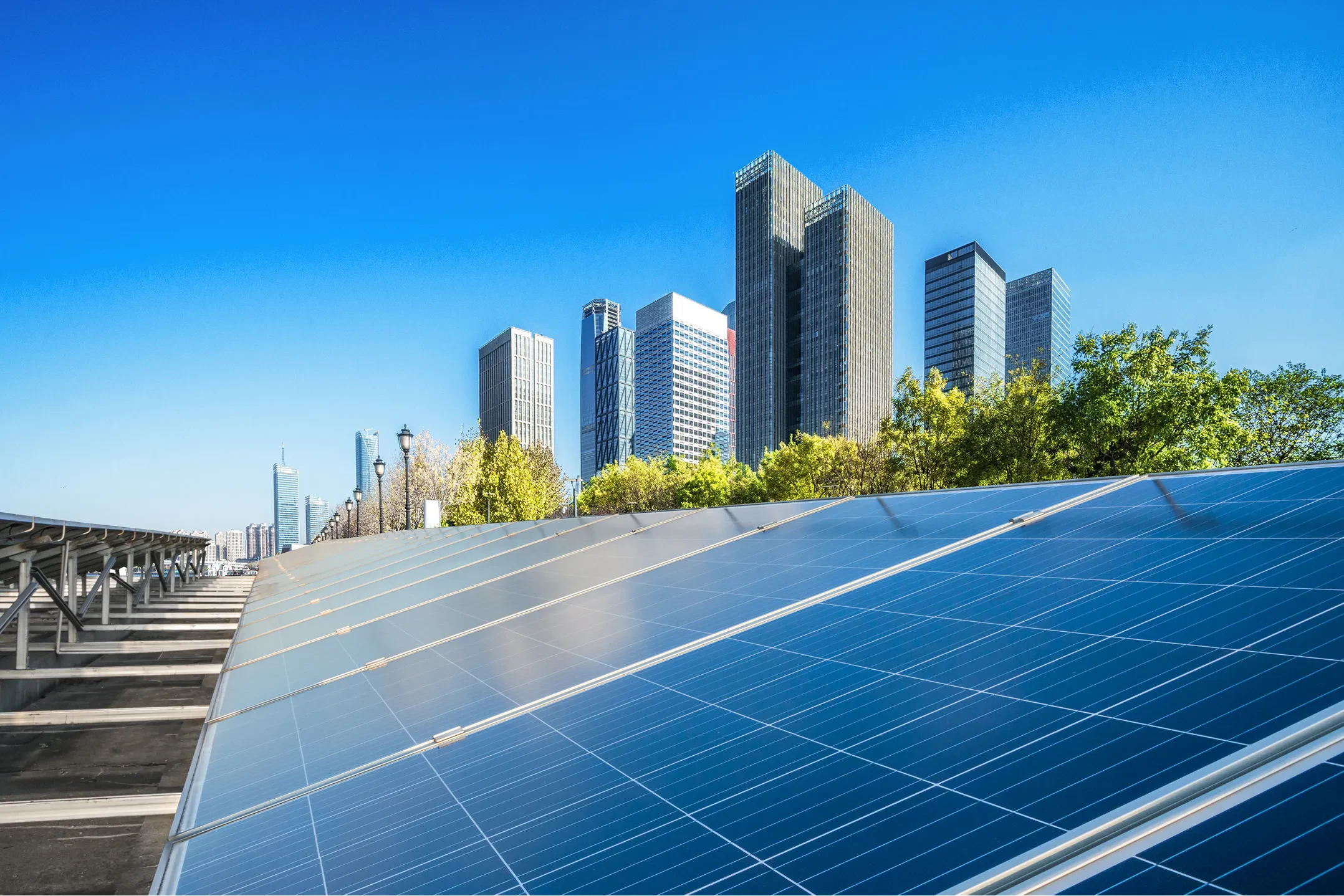
- Aim for clean energy use in operations
- Study feasibility and implement electric vehicles (EV) to replace company transportation vehicles and use electric transportation vehicles in Om Yai warehouse to cover 20% of total transportation vehicles across the entire company
- Reduce electricity consumption in headquarters and warehouses by 8% from base year 2023
- Increase the proportion of renewable energy use in business operations to at least 10%
- Expand the use of electric transportation vehicles in Om Yai warehouse to cover 40% of total transportation vehicles
- Reduce electricity consumption in headquarters and warehouses by more than 10% from base year 2023
- Increase the proportion of renewable energy use in business operations to at least 15%
Resource Management Projects

Solar Power Generation System Installation Project at Om Yai Warehouse
The company has completed the installation of 120-kilowatt solar panels at Om Yai warehouse and began operations in May 2024 to reduce dependence on government electricity and promote clean energy use. Operating results from May to December 2024 show that the solar panels were able to generate a total of 84,642 kilowatt-hours, representing 29% of the electricity used in the warehouse, which exceeds the set target of 25%. This project not only helps reduce energy costs and environmental impact,but also maximizes space utilization according to sustainable development concepts and serves as a model for promoting renewable energy use in the business sector, which aligns with sustainable development goals and international sustainability reporting standards.
2024 Performance Results
Revenue from sales and services
The solar panels can generate a total of
accounting for 29 percent of the electricity consumed in the warehouse.
Energy efficiency per revenue improved by
Due to the nature of the retail business that rents space in shopping malls, the company cannot directly control electrical systems and air conditioning but has focused on improving efficiency through selecting energy-saving equipment and appropriate technology in controllable areas. Energy consumption rates are calculated specifically for warehouses, headquarters, and branches that the company directly controls to reflect true efficiency. The 2024 operating results compared to 2023 show outstanding success. Although total electricity consumption increased from 1.23 million to 1.32 million kilowatt-hours due to business expansion, energy efficiency per revenue improved significantly, decreasing from 487.26 to 423.26 kilowatt-hours per 1 million baht of revenue, an improvement of 13.1%, which reflects the success of energy conservation measures and building employee awareness in using energy wisely.
| Year | Electricity consumption of the company's warehouses, headquarters, and branches under direct energy usage control* (kilowatt-hours) | Revenue from sales and services (million baht) | Electricity consumption of: Warehouses, headquarters and company branches under energy control (Kilowatts per 1.0-million-baht revenue) |
|---|---|---|---|
| 2023 | 1,232,521.28 | 2,529.51 | 487.26 |
| 2024 | 1,316,882.00 | 3,111.27 | 423.26 |
Water
The company recognizes the impacts of climate change that cause more severe floods and droughts, affecting the variability of water resources and shortage problems. Although the retail business does not use large amounts of water, the organization recognizes that water is a resource that must be shared with communities and society. Therefore, a comprehensive water management plan has been developed through establishing working groups and coordinating with relevant agencies, focusing on cost-effective water use through principles of reducing water consumption by checking leakage points and building awareness among employees, while controlling wastewater discharge to comply with legal standards and receive review from external agencies, to ensure sustainable water resource allocation and create responsibility to communities and society according to international sustainable development principles.

- Reduce water consumption per employee per year by 6% for warehouses and standalone branches compared to baseline year 2023
- Develop automated water usage data collection system
- Install water-saving equipment at all usage points
- Reduce water consumption per employee per year by 12% for warehouses and standalone branches compared to baseline year 2023
- Reuse treated water for warehouse cleaning at least 20% of total water consumption by 2034
- Develop comprehensive water management system
- Establish sustainable water usage standards for all departments
Water Resource Management Projects

- Moshi Energy Conservation Campaign - Happy Hearts When Helping the Planet Project. A water conservation campaign conducted from October to December 2024 to instill awareness among employees to use water resources efficiently. Although water consumption per employee increased by 17.3% due to standalone branch expansion, the project successfully established a water conservation culture within the organization.
- Water Equipment Repair Complaint System Project The water equipment repair reporting system has been operational since February 2024, providing 24-hour service. This resulted in zero outstanding complaints and effectively reduced water loss from leakage.
- Warehouse Wastewater Quality Monitoring Project Wastewater quality testing conducted in December 2024 by ILAC-MRA and TLAS certified laboratories found that all parameters met legal standards, demonstrating responsibility toward the community and environment.
2024 Performance Results
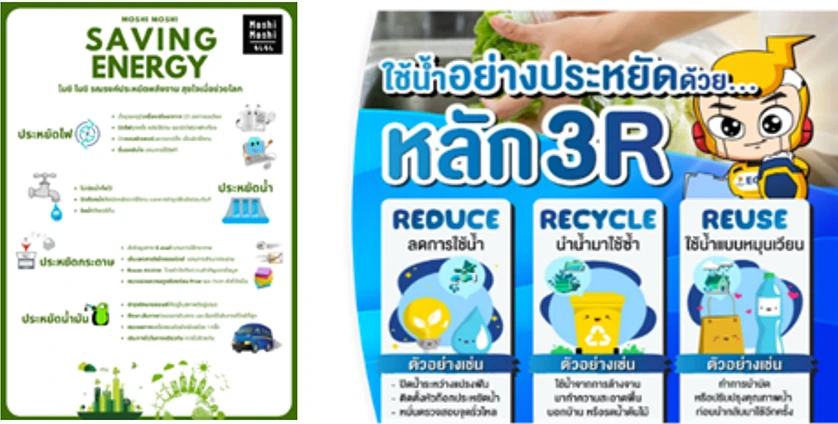
Waste
The company emphasizes comprehensive waste management following the principles of reduce, reuse, and recycle to reduce environmental impact and support sustainable circular economy systems by developing a waste sorting system into 2 main categories: recyclable waste and waste that must be sent for landfill disposal, along with monitoring and reporting waste volume data quarterly through a transparent governance system. Additionally, the company has initiated projects to reduce waste from transportation by using reusable plastic crates instead of cardboard boxes and selecting environmentally friendly waste disposal service providers, alongside developing personnel capacity and creating community participation through waste sorting education activities to continuously cultivate environmental awareness, with plans to expand data collection to cover all branches within the next 2-3 years as part of socially and environmentally responsible business operations.
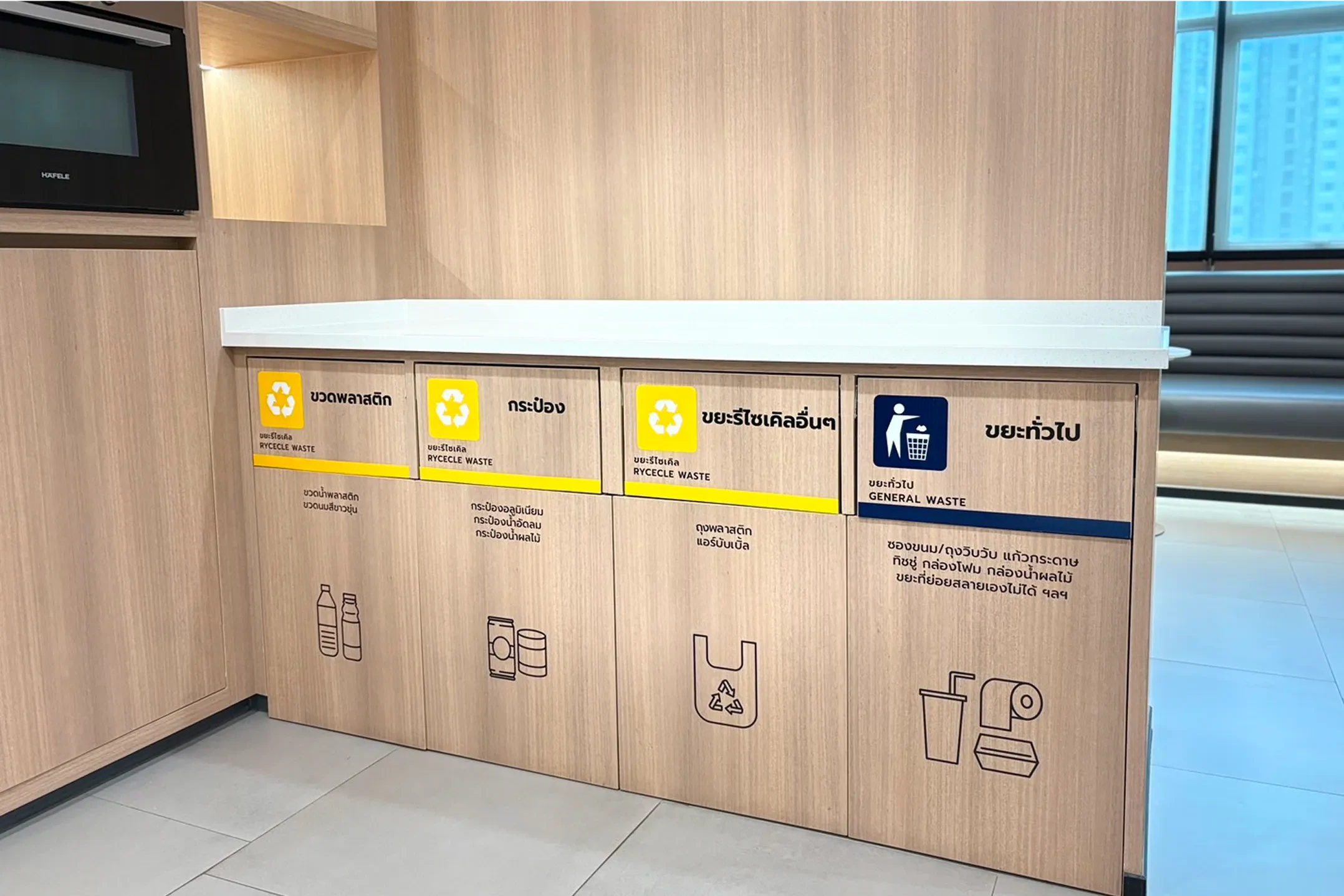
- Reduce landfill waste by 15% compared to baseline year 2024
- Reduce waste by 5% compared to baseline year 2024
- Develop comprehensive waste management system following 3R principles
- Reduce landfill waste by 30% compared to baseline year 2024
- Enhance systematic waste reuse and recycling processes
- Reduce waste by 10% compared to baseline year 2024
- Create organizational culture for sustainable waste management
- Develop into a model office with efficient waste management practices
Waste Management Projects
Climate Change Management
Climate change is a global challenge that directly impacts retail business operations, including rising energy costs, natural disaster risks that may affect branch operations and product transportation, as well as increasing expectations from stakeholders for businesses to demonstrate environmental responsibility.
The Company therefore prioritizes comprehensive and systematic management of climate change impacts through measurable greenhouse gas emission reduction targets, assessment and monitoring of greenhouse gas emissions according to international standards, improving energy efficiency with modern technology, promoting renewable energy use, efficient logistics management, waste reduction and management, raising employee awareness, and stakeholder engagement in determining operational guidelines, along with transparent and regular progress reporting to create business sustainability and support the country's sustainable development goals.


Green Office
The paper reduction project is part of our commitment to sustainable and environmentally friendly business operations by promoting the transition to digital systems to reduce unnecessary document printing and increase resource efficiency.
In 2024, the company successfully reduced paper usage by 355 reams, or 9.6% from the previous year, which resulted in preventing the cutting of 21 trees, saving 3,550 liters of water in the production process, reducing greenhouse gas emissions by 887.5 kilograms of carbon dioxide equivalent, and reducing paper waste by over 887.5 kilograms. This project not only helps reduce operational costs but also creates positive environmental impact and supports natural resource conservation for future generations.
Green Receipt for the World Project
This demonstrates our commitment to conducting business responsibly toward the environment through the use of FSC (Forest Stewardship Council) certified receipt paper across all branches nationwide. This supports sustainable forest management that considers natural regeneration rates and biodiversity protection in ecosystems.
In 2024, the company's procurement value of FSC-certified paper increased by 75.4% compared to the previous year, reflecting business expansion alongside the enhancement of environmental policies. This project not only helps raise awareness about forest resource conservation among employees and customers, but also creates positive global environmental impact through small touchpoints that connect with every customer in their daily lives.

2024 Performance Results
Greenhouse Gas Emissions from All Company Operations
Greenhouse Gas Emissions for Activities from Areas Where the Company Has Control Over Resource Usage Only
Greenhouse Gas (GHG) Emissions
The company uses the Carbon Footprint Calculation Program from TGO and plans to have the data verified by external agencies in 2026. Based on the analysis in 2024, the company expanded from 131 to 164 branches (an increase of 25%), resulting in total greenhouse gas emissions increasing from 3,534.82 to 4,354.52 tCO2e. However, GHG intensity per branch decreased from 26.98 to 26.55 tCO2e per branch, or a reduction of 1.59%, demonstrating improved management efficiency despite business expansion.
For operations under the company's direct control (headquarters, warehouses, and branches), greenhouse gas emissions increased only slightly from 715.68 to 759.89 tCO2e, but GHG emissions per revenue decreased significantly from 0.283 to 0.244 tCO2e per million baht of revenue, or a reduction of 13.78%, reflecting more efficient energy consumption control. Greenhouse gas emissions are categorized into 3 scopes according to international standards: Scope 1 (direct emissions from operations under direct control), Scope 2 (indirect emissions from purchased energy), and Scope 3 (other indirect emissions throughout the value chain), to enable systematic and effective planning for reducing environmental impact.
Table 1: Greenhouse Gas Emissions from All Company Operations
| Year | Sales (MB) | Scope 1 (tCO2e) | Scope 1 (tCO2e) | Total (tCO2e) | Greenhouse Gas Emission Intensity ((tCO2e) / Sales 1 Million Baht) |
|---|---|---|---|---|---|
| 2023 | 2,529.51 | 99.54 | 3,435.28 | 3,534.82 | 1,397.43 |
| 2024 | 3,111.26 | 101.58 | 4,252.94 | 4,354.52 | 1,399.60 |
Table 2: Greenhouse Gas Emissions for Activities from Areas Where the Company Has Control Over Resource Usage Only
| Year | Sales (MB) | Scope 1 (tCO2e) | Scope 1 (tCO2e) | Total (tCO2e) | Greenhouse Gas Emission Intensity ((tCO2e) / Sales 1 Million Baht) |
|---|---|---|---|---|---|
| 2023 | 2,529.51 | 99.54 | 616.14 | 715.68 | 282.93 |
| 2024 | 3,111.26 | 101.58 | 658.31 | 759.89 | 244.24 |
Scope of Data Collection: Headquarters, Warehouses, Standalone Branches
Environmental Management
The company is committed to conducting business under strict environmental laws and standards by establishing sustainability management and environmental policies with the goal of achieving zero environmental complaints. This is achieved through efficient resource management covering water usage, waste and refuse management, as well as energy conservation, along with monitoring and calculating greenhouse gas emissions according to the Greenhouse Gas Management Organization's criteria to support the country's greenhouse gas reduction targets. The company provides continuous employee training, opens channels for receiving feedback from stakeholders, and systematically improves work processes to align with international standards in order to reduce environmental impact and build confidence among shareholders, communities, and society in driving the business toward sustainability.

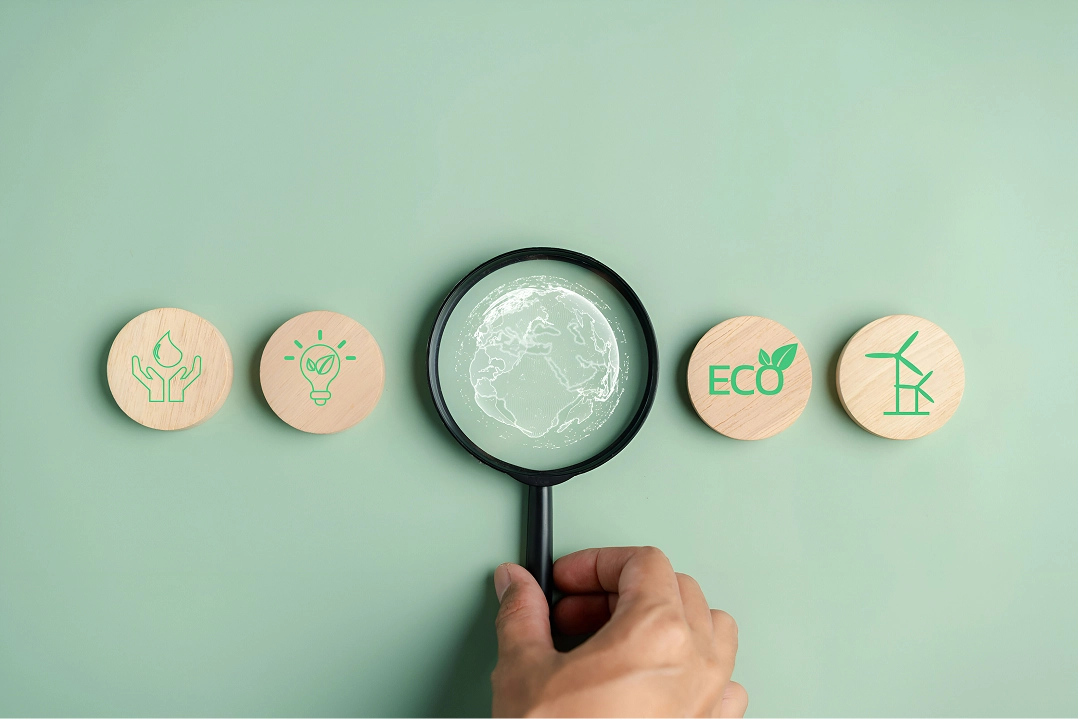
Environmental Management Goals
The company has established environmental management goals with a focus on strict compliance with environmental laws and regulations, with the primary objective of operating without any form of environmental law violations and maintaining operational standards to prevent situations that could lead to receiving warning letters from government agencies, fines, or environmental lawsuits. The company has defined clear success indicators by maintaining the number of environmental law violations at zero cases per year continuously to reflect management efficiency and concrete environmental responsibility, as well as building confidence among all stakeholder groups in driving the business towards quality sustainability.
Moshi Green Awareness
This is a core environmental operational approach that aims to systematically and comprehensively drive activities through new employee training, current employee development, and instilling core sustainability values as part of organizational culture. This project serves as the main conceptual framework for creating various projects that cover waste management, energy management, efficient water resource utilization, and operations in compliance with environmental laws. It emphasizes building knowledge and understanding about wastewater control, solid waste management, and air pollution control from vehicles in warehouse operations, so that employees at all levels—from management to operational staff—can work correctly, participate in waste reduction, energy conservation, and efficient resource utilization. This will lead to sustainable organizational development that is environmentally friendly in the long term.

2024 Performance Results
The company had
The company incurred
The company conducted environmental capacity development for personnel through training provided to all
Eco-Friendly Products
The company recognizes the importance of eco-friendly products in an era when consumers have increased awareness about the environmental impact of product usage and climate change. We see opportunities to respond to market demand that is shifting toward choosing products that reduce environmental impact, whether through efficient use of natural resources, pollution reduction, or the use of recyclable materials, while maintaining product quality and safety at accessible prices for consumers.
Under the company's environmental policy that promotes sustainable procurement of goods and materials, the company has set a primary goal to continuously develop and distribute eco-friendly products. Currently, we are studying and developing processes related to the use of recycled and biodegradable materials, such as recycled plastics and recycled paper, to create a balance between production costs, supplier management, and bringing sustainable products to market at appropriate prices. This aligns with sustainable development approaches and enhances the organization's positive image.
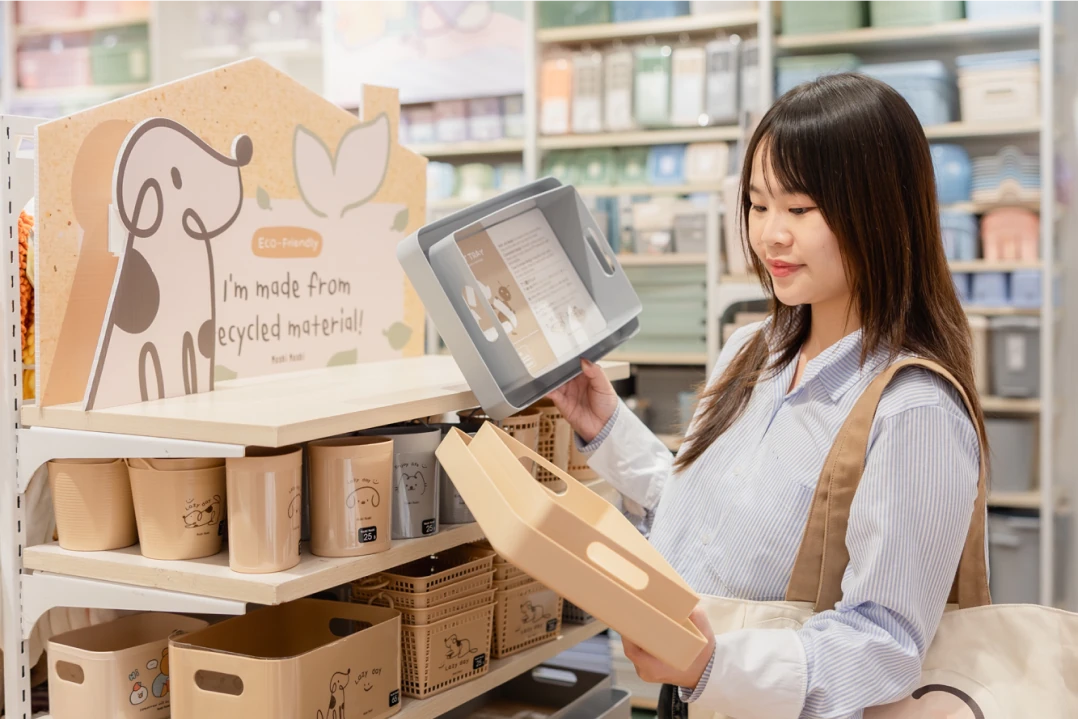
- Increase eco-friendly products by 5 collections by 2030
- Increase the number of eco-friendly products by 10% compared to the previous year
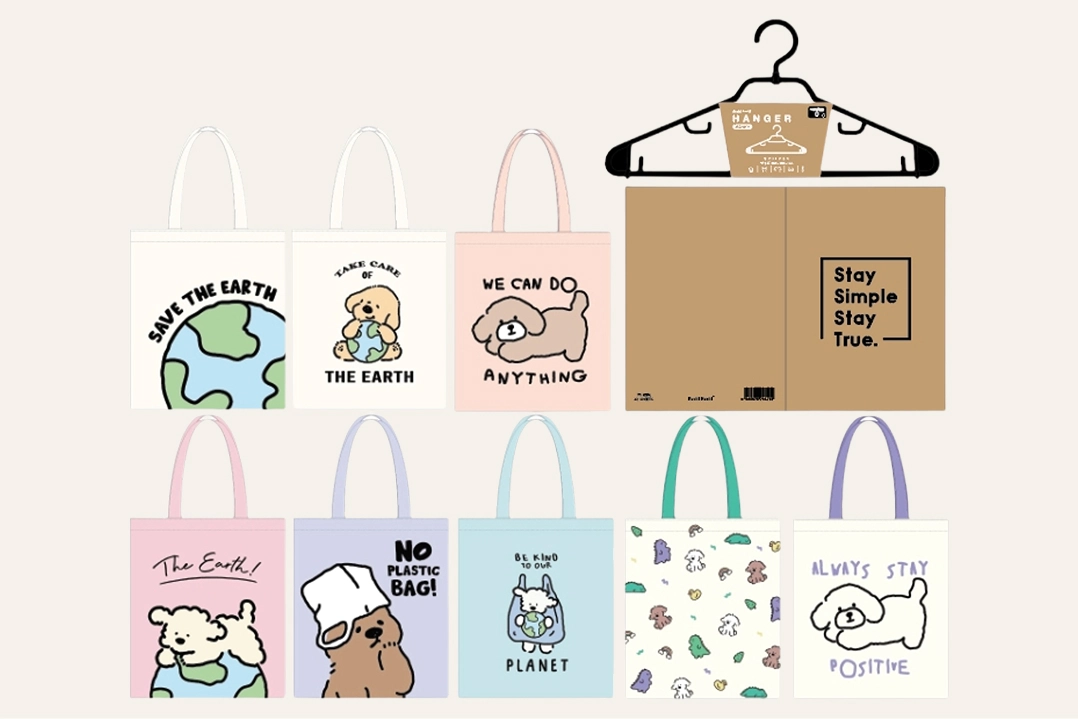
In 2025, the company selected products that primarily use recycled materials to reduce environmental impact and meet the needs of consumers who prioritize environmental conservation. We have chosen to develop 3 main product categories: notebooks made from recycled paper, bags made from used plastic bottles, and other household products such as baskets, clothes hangers, and trash cans made from PP and PS plastic scraps, which are waste from the production process. The selection of these products is based on market popularity and the potential for efficient use of recycled materials. In the design and development process for each product category, the company focuses on creating a balance between aesthetics, durability, and sustainability, so that products can meet the needs of modern consumers who want to reduce waste generation and participate in environmental care through purchasing globally responsible products.
Eco-Friendly Packaging
The company recognizes the urgent need to address environmental problems from traditional packaging usage, particularly plastic waste issues that severely impact ecosystems. Under pressure from stricter government regulations, expectations from environmentally conscious consumers, and corporate social responsibility, the company sees that transitioning to eco-friendly packaging not only helps alleviate environmental impact but also represents a significant business opportunity to increase credibility, create a positive image, and build competitive advantages to meet the expectations of all stakeholder groups.
Therefore, the company has established sustainable packaging management approaches through 3 main principles: reducing the use of hard-to-decompose plastics, increasing the use of recycled materials, and considering packaging size and weight. Implementation is carried out through designing and developing packaging that uses materials efficiently, selecting environmentally friendly materials that can be reused or biodegraded, along with systematic monitoring and reporting systems, including raising awareness and promoting participation of employees and partners in developing sustainable packaging innovations. This creates a balance between business operations and environmental care and contributes to driving toward a sustainable future.
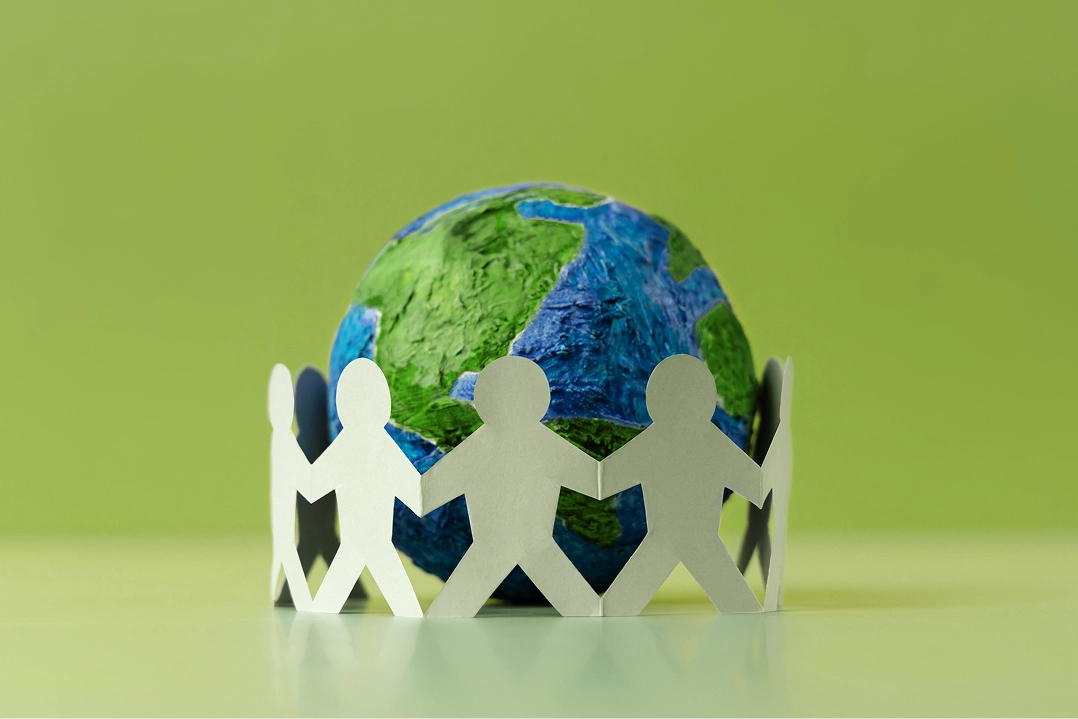
- Develop more sustainable and reusable packaging
- Change tags from regular paper to recycled paper by 2027
- Expand the use of recycled materials in other types of packaging
- Increase the conversion of packaging materials to recycled materials or reduce packaging usage by at least 4 products per year
- Continuously develop eco-friendly packaging innovations to support long-term sustainability goals

Packaging Reduction Project
The packaging reduction project is an initiative aimed at reducing plastic packaging usage without affecting product quality and aesthetics, through changing the format from using OPP plastic bags to arranging displays at point-of-sale locations in branch stores. As a result, the company was able to reduce the use of OPP plastic bags by 1,200,000 pieces, equivalent to 3 tons in weight, and reduce the use of packaging boxes for portable glass products by another 8,400 pieces. This operation helped reduce greenhouse gas emissions by 10.5 tons of carbon dioxide equivalent, reduce crude oil usage in the production process by 1,500 liters, and importantly, helped reduce plastic waste problems that take up to 450 years to decompose naturally. This project reflects the company's commitment to creating a balance between business operations and environmental care through presenting products in a format that reduces waste generation and sustainable impact on ecosystems.
Green Tag
The project to change paper tags to recycled paper is part of the company's commitment to developing and modifying packaging to be more environmentally friendly, with the main goal of replacing materials that cannot decompose naturally to achieve 3 important objectives: reducing waste in nature, reducing the use of new resources, and promoting the use of recyclable and biodegradable materials.
In 2024, the company studied and designed the transition from using art card paper to recycled paper for product tags, carefully considering the quality of recycled paper to ensure durability and suitability for products, efficient recycling processes to reduce environmental impact, and suitability for actual use. The company has set a goal to change to using recycled paper for no less than 30% of total usage for product tags by 2027, as an important step in reducing environmental impact and promoting sustainable resource utilization.


